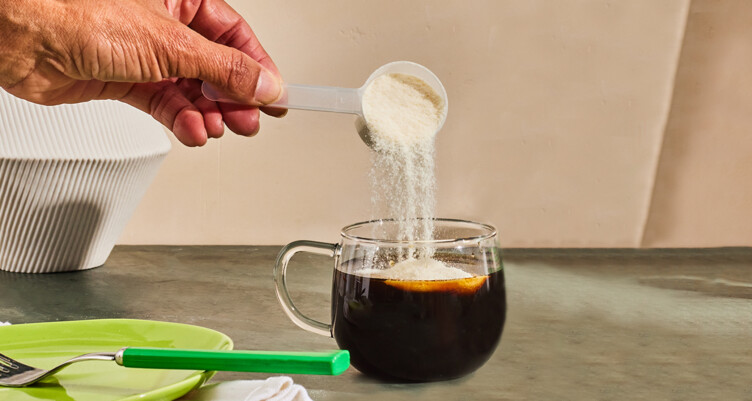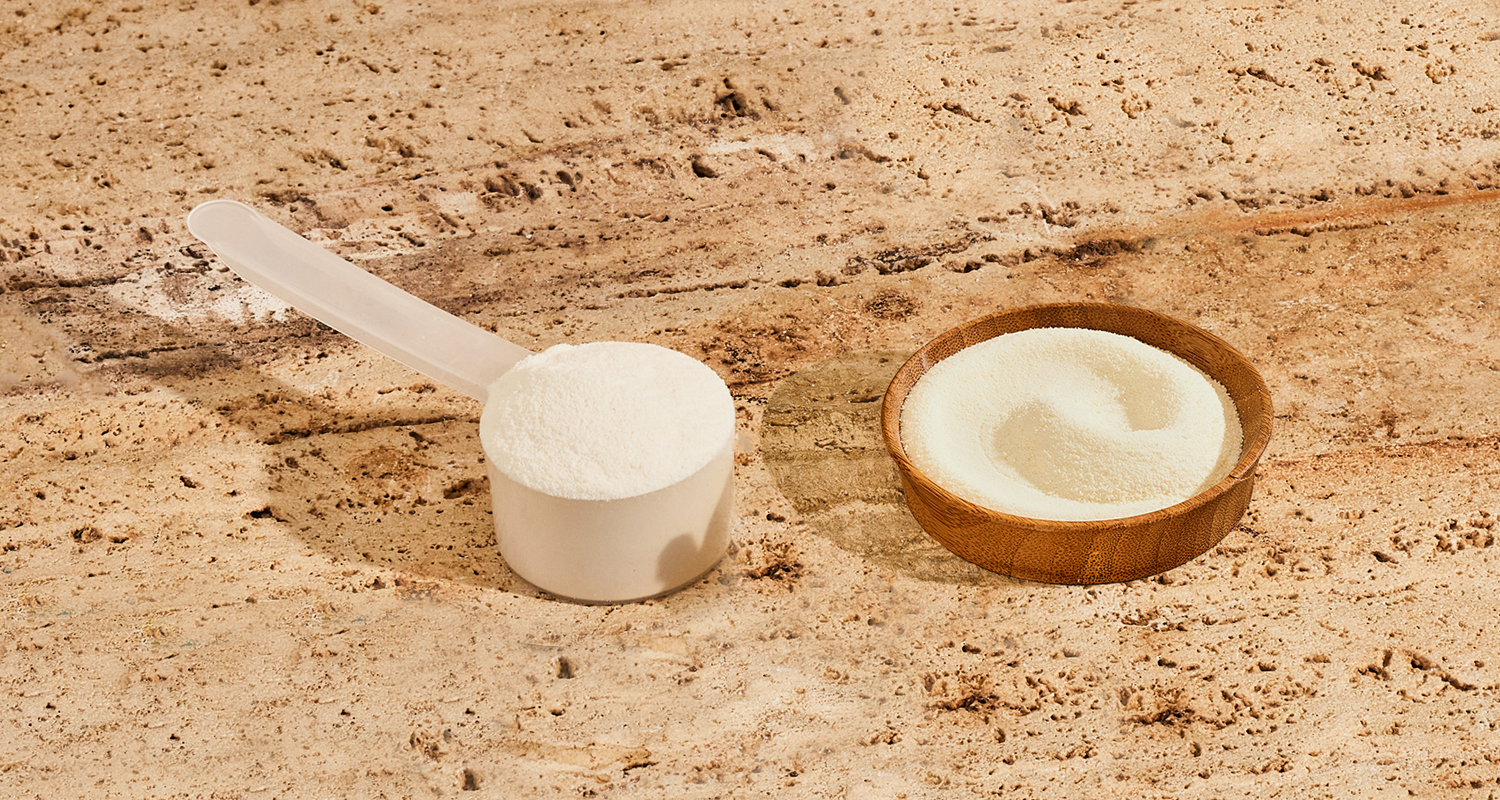Collagen Protein: Benefits, Side Effects, and How It Compares

- Collagen is the body’s most abundant protein. It comprises the hair, skin, nails, bones, muscles and joints.
- Collagen protein offers similar health benefits as whey protein. It’s also closely related to collagen peptides.
- Boost health and wellness by incorporating high-collagen recipes into your diet.
What you’ve heard about collagen protein is true — it’s good. This structural protein is a super glue that holds the body together. This includes the skin, muscles, ligaments, and connective tissue.[1]
But when you factor in the many other protein sources, how does collagen compare? And what’s the difference between collagen protein and collagen peptides, anyway?
Keep reading to learn how collagen protein stacks up against proteins. Plus, discover practical ways to incorporate this esteemed protein into your diet.
What is collagen protein?
Collagen is a natural protein in the body that provides structure to the skin, bones, muscles and connective tissue. It accounts for 30 percent of the body’s protein.
Although collagen acts like glue, it doesn’t stick around for long. Your collagen supply starts to dwindle in your mid-to-late 20s and early 30s.
Collagen supplements may help with collagen drops. Supplementing with collagen protein can support joint, skin and muscle health.[2][3]

Collagen Protein vs Whey Protein
Whey and collagen protein are both protein sources, but they differ in use and benefits.
Whey protein is a mixture of proteins derived from whey, the watery milk substance that separates from curds when cheese is made.[4] Rich in muscle-enhancing amino acids, whey protein is a favorite among bodybuilders or anyone aiming for muscle growth.
Whey protein contains all nine essential amino acids. Collagen protein falls slightly behind with only eight amino acids. It also less BCAAs (branched-chain amino acids).
While collagen may also support muscle growth, it’s better known for preventing signs of aging. This includes wrinkles, stiff joints and sagging skin.
Collagen Protein vs Collagen Peptides
Collagen protein and collagen peptides are a lot alike, but different at the same time.
Collagen peptides, or hydrolyzed collagen, are smaller pieces of collagen protein. Collagen protein gets broken down into smaller pieces in a process called hydrolysis. [5] This makes it easier for the body to digest.
Benefits of collagen protein
The benefits of collagen protein live up to the hype. These are the potential benefits of your new daily staple.

- Skin elasticity: Firm, plump skin is the result of skin elasticity. A 2023 meta-analysis of 26 studies found that collagen can support skin hydration and elasticity. The results are more noticeable the longer you use it.[6]
- Joint support: Struggling with joint issues? There is some evidence that collagen may help with joint comfort and function.
- Muscle maintenance: Collagen is rich in essential amino acids proline, glycine and hydroxyproline.[7] This may help with the three crucial M’s: muscle growth, muscle repair and muscle maintenance.
Potential Side Effects of Collagen Protein
You know the benefits, but what about the side effects of collagen protein?
While side effects with collagen protein are rare, they can happen. You may experience the following[8]:
- Itchiness
- Rashes
- Headaches
- Diarrhea
- Dizziness
- Indigestion
- Heartburn
- Bloating
High Collagen Recipes to Try
Collagen is an unlikely ingredient that can be added to pretty much anything.
Incorporate collagen into your diet with these creative recipes.
Gut-Friendly Collagen Smoothie
When your gut is showing signs of trouble, this creamy and satisfying smoothie restores harmony. Collagen is just one of many gut-soothing ingredients. The others include ginger and kefir or coconut yogurt.
Bone broth — a nutrient-dense and collagen-rich liquid — is the best of collagen. It’s made by boiling down animal bones. Buying a premade version can quickly get expensive, so use this simple recipe to make it at home.
This collagen green juice is infused with health benefits. Celery and cucumber hydrate you, lime and lemon cleanse and detoxify and collagen shows the gut some love.
Conclusion
Collagen is one of the body’s most abundant and important proteins. It’s responsible for providing structure and support to skin, muscles, ligaments and connective tissue.
In the battle of proteins, collagen protein stacks up against whey protein. Your health goals will determine which is the right supplement for you. If muscle growth is your desired goal, whey protein is preferable. But if you’re looking for healthier hair, skin or nails, collagen protein may help. Try high-collagen recipes to easily boost your intake.
Sign up for early access to sales, product launches, the latest Bulletproof news and more!



